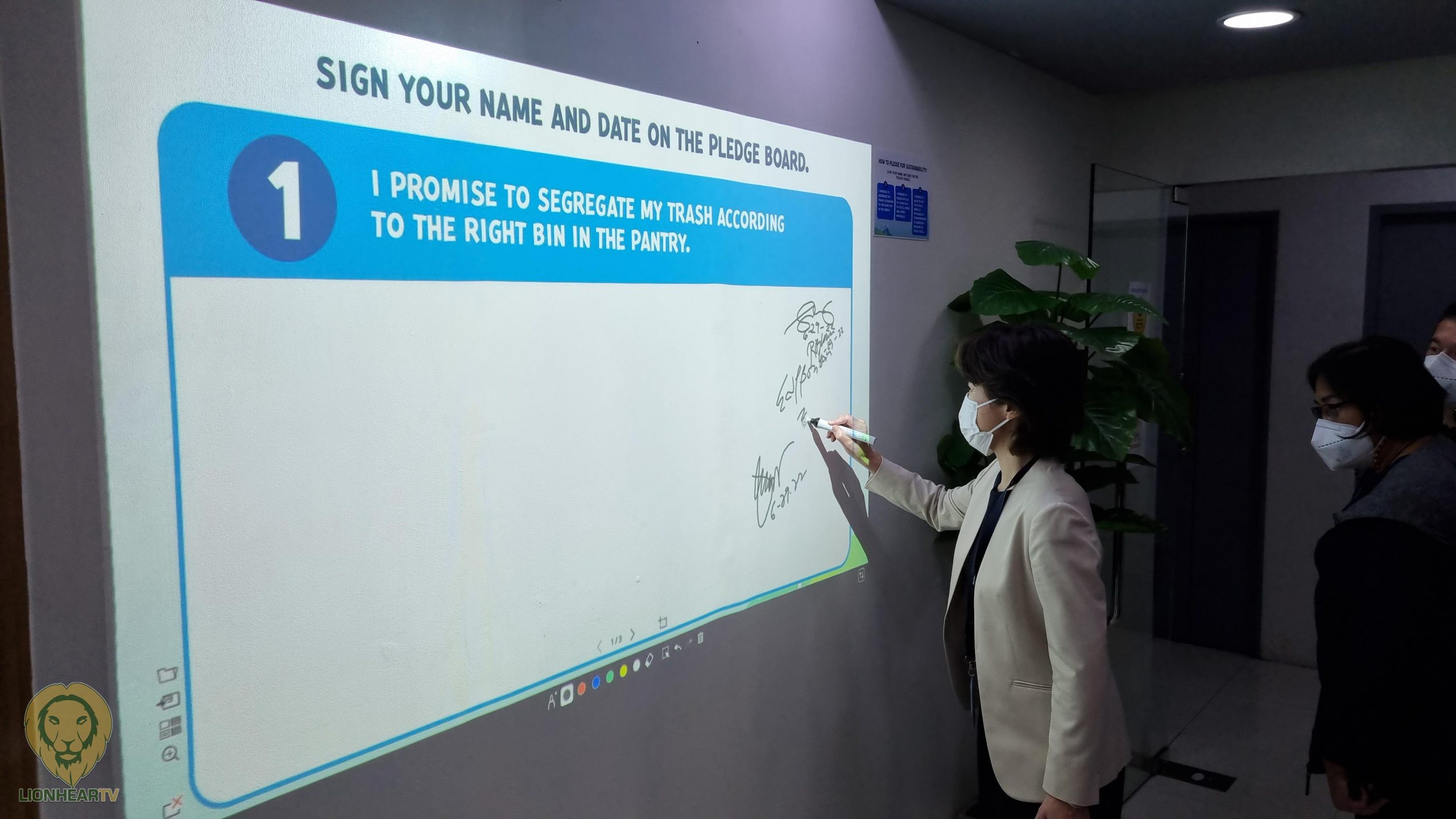In recent years, the world has become more aware of the increasing human pressure on the environment with two defining public health threats of the century: the COVID-19 pandemic and climate change.
The pandemic has limited mobility for over two years, displacing established operations and causing several sectors to adopt technology in an unprecedented rate. On one hand, the swift digitization of local industries has created a new space for business growth. On the other, as businesses consume technology in an accelerated rate, there is also a surge in the demand for energy, which may have negative implications on the environment.
Due to the double-edged phenomenon, Epson urges companies to prioritize responsible energy and technology consumption. With its recently concluded sustainability seminar for its employees, Epson walked the talk by encouraging its staff to practice a sustainable lifestyle. The global technology leader discussed the different measures it is taking to further embrace sustainability.
Epson’s leadership discussed the company’s overall commitment to sustainability, key partnerships, and projects, as well as different practices attendees can pledge to incorporate into their individual sustainability journeys. The event also featured Dino Calderon, Project Manager of Education for Sustainable Development of World Wide Fund for Nature (WWF) Philippines, to further raise employees’ awareness on biodiversity and sustainable development.

“There is no telling how big an impact we can make if our collective actions zero in on addressing climate change, preserving our environment, and driving economic growth,” said Masako Kusama, President and Director at Epson Philippines. “Epson takes pride in our commitment to advancing towards a more sustainable future, and it is crucial that we learn the different ways—both big and small—in which we can further embrace sustainability,”
“Now more than ever, we must turn the tide, so consumers and businesses start acting on sustainability goals and integrate them in their operations,” said Ed Bonoan, General Manager of Marketing Division at Epson Philippines. “The transition to a low-carbon economy involves the need for businesses to be innovative to secure a sustainable future. As we enter the phase of business recovery during the new normal, it is time for companies to embrace responsible energy and technology consumption—and this change must start with ourselves.”
Looking back on an enriched history in environmental sustainability
For Epson, the culture of respect for the environment is deeply ingrained in its DNA, as it fully commits to a harmonious co-existence with the communities in which it operates.
Throughout its 80 years in operation, Epson has continually been recognized for its efforts in lessening environmental impact. In more recent years, Epson joined the international initiative RE100 and committed to switch to 100% renewable energy at all Epson Group production sites around the world by 2023, with the Philippines achieving this through successfully switching its manufacturing site in Batangas to 100% renewable energy in 2021.
“For decades, we have proved that Epson’s actions, initiatives, and innovations are always driven to action by our commitment to sustainability no matter how ambitious the goals are,” said Bonoan.
Deepening an overall commitment to sustainability
With such an enriched history of environmental responsibility, Epson leads by example and deepens its commitment to sustainability moving forward.
Ed Bonoan, General Manager of Marketing Division at Epson Philippines, discusses Epson’s environment sustainability efforts throughout the years.
In 2021, Epson introduced Epson 25 Renewed, its revamped corporate vision that pursues the company’s aspirational goal of achieving sustainability and enriching communities. In the renewed vision, Epson aims to connect people, things, and information by leveraging its efficient, compact, and precise digital technologies.
Epson also launched its Environmental Vision 2050 that charts out three key commitments to achieve sustainability and enrich communities: 1) subscribing to all 17 United Nations Sustainable Development Goals; 2) reducing total emissions by 2030 line with 1.5oC scenario; and 3) becoming carbon-negative and underground resource-free by 2050.
“This global vision guides our business roadmap and goals for the region. In Southeast Asia, we have started on a three-year sustainability plan which focuses on five SDGs which we deem will make the most impact in the region,” stated Bonoan.
Amplifying actions through collaboration
Over the past years, Epson has prioritized partnerships that amplify their sustainability goals. Epson forged a partnership with World Wide Fund for Nature Philippines, in line with Epson’s escalated efforts to increase awareness on climate change and its effects on the environment. Formed in 2021, the partnership has multiple projects well underway. Earlier this year, they launched Museo Kalikasan, a three-dimensional and immersive virtual museum that allows users from around the world to experience the exhibit from the safety of their homes. Meanwhile, Epson Southeast Asia also partnered with WWF to scale up marine life and achieve a low carbon future, with various marine conservation and climate action projects across the Asia, including the Philippines.

Moving forward, Epson will support WWF to work with local communities in Southern Palawan to restore several mangrove sites. In addition, Epson will help WWF establish a Community Learning and Innovation Hub to empower communities to sustain capacity building and share best practices.
“We’re excited to finally put this partnership into action, to create a positive impact not only on our environment but also on the lives of those who will be learning more from this,” said Bonoan. “Epson’s commitment to sustainability has always been integrated in the way we operate, in the products and solutions that we innovate, and the initiatives that we do to help our communities shape a greener future for the next generation.”


